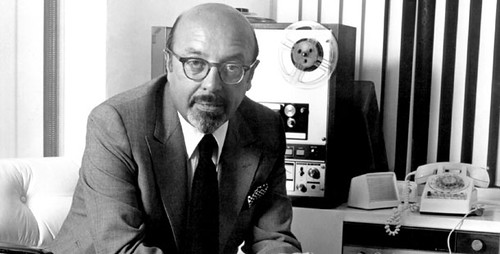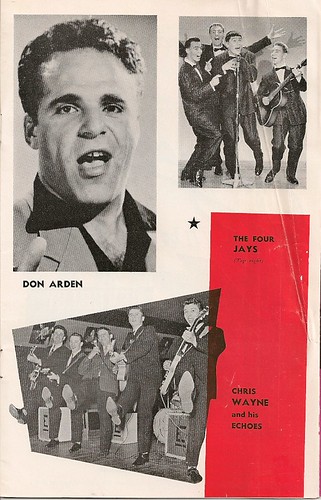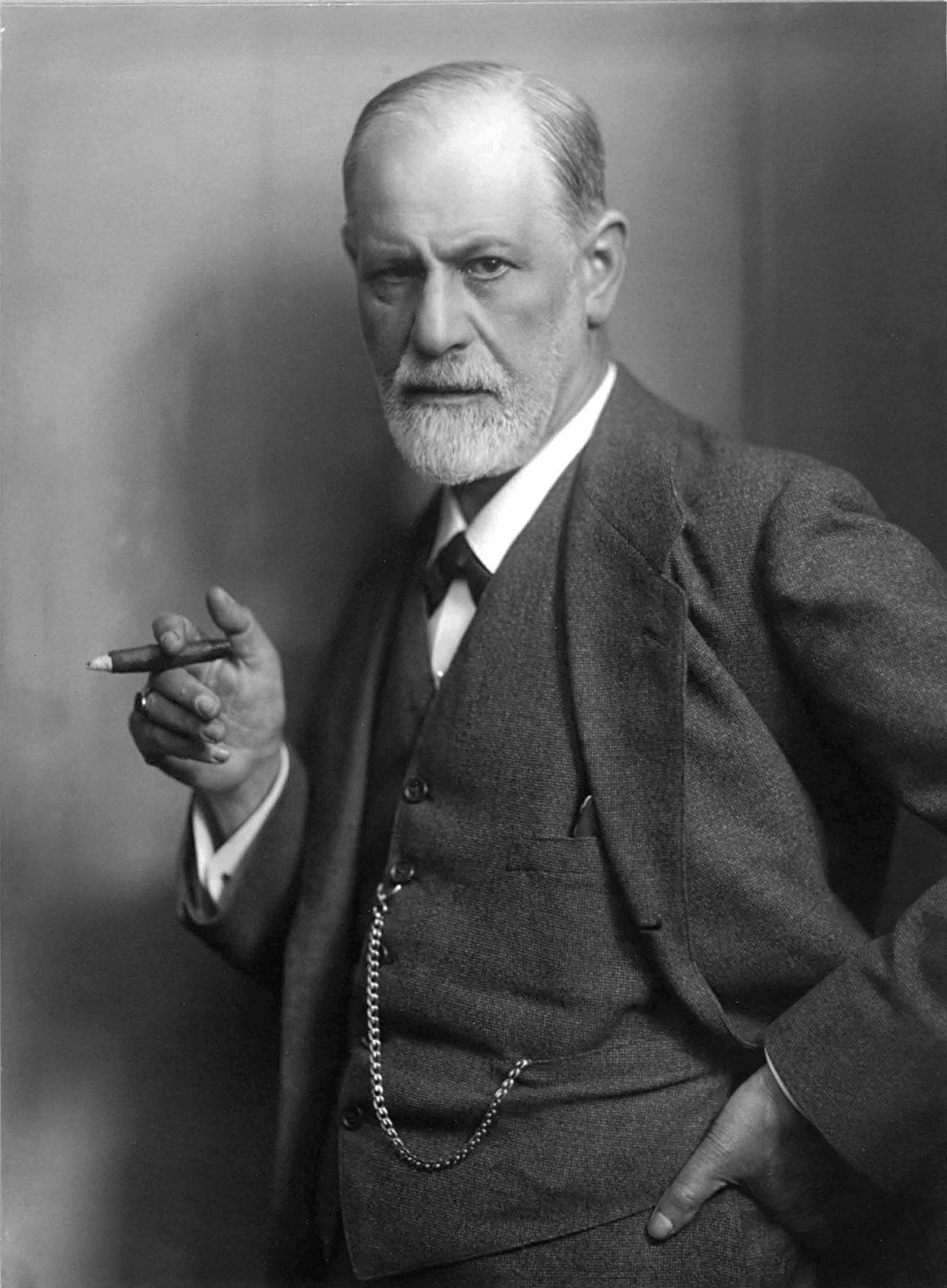
In the dynamic and ever-evolving landscape of the music industry, certain individuals transcend the roles of mere artists or executives, ascending to the rarefied status of music moguls. These are not just figures who have achieved commercial success, but visionary entrepreneurs, pioneering producers, shrewd managers, and influential executives who have sculpted entire empires from their profound passion for music. Their impact resonates far beyond the creation of hit songs, extending into the realms of technological innovation, market expansion, cultural influence, and the strategic discovery and nurturing of talent.
Building a lasting catalog empire in the music world demands a unique fusion of artistic intuition and astute business acumen. It requires a relentless drive to innovate, an uncanny ability to spot emerging trends, and the strategic foresight to diversify investments across various sectors. The journeys of these titans offer invaluable insights into how to navigate challenges, seize opportunities, and ultimately create immense value, not only for themselves but for countless artists and the industry at large.
This in-depth exploration will delve into the foundational strategies and transformative business ventures of ten such moguls, unraveling the ‘simple secrets’ behind their monumental success. We will examine how they built their empires from the ground up, redefined industry dynamics, and left an indelible mark on global culture. Their stories are a testament to the power of vision, determination, and an unwavering commitment to excellence, providing a blueprint for aspiring entrepreneurs in any field.

1. **Jay-Z: From Humble Hustle to Billion-Dollar Mogul**
Shawn ‘Corey’ Carter, globally recognized as Jay-Z, embodies the quintessential journey from adversity to unparalleled success. Born in the notorious Marcy Projects of Brooklyn, New York, in 1969, his early life was marked by poverty, crime, and the harsh realities of the inner city. His father’s abandonment forced his mother to raise him and his siblings, instilling in him survival skills that would later become the bedrock of his entrepreneurial empire. Exposed to street life from a young age, Jay-Z’s education came as much from his surroundings as it did from his limited time in the classroom, where he attended high school alongside future legends like The Notorious B.I.G. and Busta Rhymes. It was during this period that he began honing his lyrical skills, using rap as a powerful form of expression and an escape.
Facing persistent rejection from established record labels, Jay-Z made a groundbreaking move that would define his career and inspire countless others. In 1995, alongside Damon “Dame” Dash and Kareem “Biggs” Burke, he co-founded Roc-A-Fella Records. This was not merely the launch of a record label; it was a profound declaration of independence, a platform through which Jay-Z could create and distribute his music entirely on his own terms. The label’s inaugural release, Jay-Z’s debut album, “Reasonable Doubt” (1996), is now celebrated as a classic, introducing the world to his unique blend of streetwise storytelling and sophisticated wordplay. Though it didn’t immediately achieve massive commercial success, it laid a crucial foundation for his future dominance in the rap world.
As his music career gained considerable momentum, Jay-Z shrewdly began to diversify his interests, expanding his empire well beyond recording. His subsequent albums, including “In My Lifetime, Vol. 1” (1997), “Vol. 2 Hard Knock Life” (1998), and “Vol. 3… Life and Times of S. Carter” (1999), not only cemented his status as a leading voice in hip-hop but also revealed his keen business acumen. “Vol. 2… Hard Knock Life,” featuring the hit single “Hard Knock Life (Ghetto Anthem),” garnered his first Grammy and propelled him into the mainstream spotlight, demonstrating his ability to leverage artistic success into broader commercial ventures.
A significant venture during this period was the co-founding of Rocawear in 1999, a clothing line that quickly became synonymous with urban fashion and an extension of Jay-Z’s personal brand. Rocawear’s rapid growth, generating over $700 million in annual revenue at its peak, showcased his expertise in building and monetizing lifestyle brands. His strategic foresight was further evidenced in 2007 when he sold Rocawear for a remarkable $204 million. Beyond fashion, Jay-Z also ventured into film, co-founding Roc-A-Fella Films, which produced movies like “State Property” (2002) and “Paid in Full” (2002), and made a strategic move into sports by acquiring a minority stake in the New Jersey Nets in 2004, a move integral to the team’s eventual relocation to Brooklyn.
A pivotal moment arrived in 2004 when Jay-Z transitioned from artist to executive, becoming the President and CEO of Def Jam Recordings. This role was a testament to his leadership capabilities, where he successfully signed and developed artists who would become global superstars, such as Rihanna and Ne-Yo. However, his tenure at Def Jam highlighted his discomfort with corporate constraints, leading to clashes over creative direction and business strategy. His eventual departure in 2007, though marking the end of an era, liberated him to fully concentrate on constructing his empire on his own terms, setting the stage for his most ambitious endeavor yet.
In 2008, Jay-Z launched Roc Nation, a full-service entertainment company that would revolutionize the industry. This venture was far more than just a record label; it emerged as a comprehensive powerhouse encompassing management, publishing, touring, and branding. Jay-Z’s expansive vision for Roc Nation was to establish a global entertainment entity capable of supporting artists across every facet of their careers, from initial music production to holistic branding and beyond. Roc Nation’s roster swiftly grew to include an array of top-tier talent across diverse genres, and the company strategically expanded into sports management with the establishment of Roc Nation Sports in 2013. This move significantly solidified Jay-Z’s influence within the sports industry, enabling him to represent elite athletes such as Kevin Durant and Dez Bryant, further cementing his status as a multi-industry magnate. Throughout this period, Jay-Z continued to release impactful music, with albums like “The Blueprint 3” (2009) and “Magna Carta Holy Grail” (2013) achieving substantial commercial success. Nevertheless, his overarching focus progressively shifted towards cultivating a lasting legacy that extended far beyond his musical achievements.
By the mid-2010s, Jay-Z had unequivocally established himself as a primal mogul with an impressively diverse investment portfolio. A significant move was his acquisition of Tidal, the music streaming service, in 2015 for $56 million. Tidal was innovatively positioned as an artist-friendly platform, distinguished by its high-fidelity sound quality, and Jay-Z skillfully leveraged his extensive network, including relationships with Beyoncé, Kanye West, and Rihanna, to ensure its success. In 2021, he strategically sold a majority stake in Tidal to Square, Inc. (now Block, Inc.), a deal that valued the company at an impressive $297 million. His portfolio also boasts early investments in technology giants like Uber, alongside substantial real estate holdings in prime locations such as New York, Los Angeles, and the Hamptons, underscoring his broad investment strategy.
His partnership with LVMH for the sale of a stake in Armand de Brignac, his luxury champagne brand (colloquially known as Ace of Spades), further expanded his luxury brand portfolio. This 2021 deal, which valued the brand at over $600 million, powerfully demonstrated Jay-Z’s exceptional ability to navigate high-stakes negotiations with the world’s most prominent companies. Furthermore, in 2019, Jay-Z co-founded Marcy Venture Partners, a venture capital firm with a strategic focus on consumer brands and technology startups, investing in companies like Fenty and StockX. He also ventured into the burgeoning cannabis industry with the launch of Monogram, a luxury cannabis brand, and assumed the role of Chief Visionary Officer at The Parent Company, a significant cannabis holding entity. This relentless diversification and strategic wealth building have solidified his status as one of the richest musicians globally, with an estimated net worth of $2.5 billion as of 2024, making him the first hip-hop billionaire, a testament to his primal mogul mindset rooted in ownership, control, and an unyielding vision.

2. **Berry Gordy Jr. and the Motown Sound: A Distinctive Catalog Empire**
In the post-war era, Berry Gordy Jr. emerged as an exceptionally influential independent mogul, whose vision gave birth to Motown Records. Recognizing a gap in the market and armed with a profound understanding of popular music, Gordy established a label that would not only produce hits but also cultivate a distinctive sound and style. His genius lay in creating a comprehensive system for artist development, songwriting, and production, which meticulously polished raw talent into crossover superstars. Motown was more than a record company; it was a cultural phenomenon.
Motown’s iconic roster featured legendary artists such as The Supremes, The Temptations, and Stevie Wonder, all of whom became household names under Gordy’s guidance. He meticulously controlled every aspect of their careers, from their music and choreography to their public image, ensuring a consistent brand of sophisticated pop and soul. This meticulous approach allowed Motown to generate an unprecedented number of chart-topping singles and albums, building an immensely valuable and enduring music catalog that continues to resonate with audiences worldwide. The Motown sound, characterized by its melodic richness, infectious rhythms, and polished production, became instantly recognizable and universally loved.
The cultural impact of Berry Gordy Jr.’s Motown empire cannot be overstated. By presenting impeccably dressed and choreographed African American artists performing music with universal appeal, Motown records effortlessly transcended racial barriers during a period of significant social change. His label played a pivotal role in integrating Black artists into mainstream American culture, fostering a dialogue on race and identity through the power of music. Motown’s success demonstrated how a clear artistic vision combined with shrewd business practices could create a catalog empire that was both commercially prosperous and profoundly influential.

3. **The Ertegun Brothers and Jerry Wexler (Atlantic Records): Curators of Sound**
Ahmet Ertegun, Jerry Wexler, and Nesuhi Ertegun stand as towering figures in the history of independent record labels, fundamentally shaping the sound of American music through Atlantic Records. Emerging in the post-war period, Atlantic challenged the established major labels by focusing on genuine artistry and diverse musical genres. The Ertegun brothers, particularly Ahmet, possessed an extraordinary ear for talent and a deep appreciation for rhythm and blues, jazz, and eventually rock and roll. This passion, combined with Wexler’s keen production instincts, allowed Atlantic to become a crucible for musical innovation and a haven for groundbreaking artists.
Atlantic Records became renowned for signing and producing an astounding array of legendary artists, demonstrating an unparalleled ability to curate an eclectic yet cohesive catalog. Their roster boasted giants like Ray Charles, Aretha Franklin, and Led Zeppelin, showcasing their versatility and commitment to artistic integrity. The label provided artists with creative freedom, a rarity at the time, while simultaneously offering robust production support and strategic marketing. This balance fostered an environment where artists could thrive and create their best work, leading to a catalog rich in both commercial success and critical acclaim. The Erteguns’ and Wexler’s genius lay in recognizing raw talent and then empowering it to flourish, rather than imposing a predefined commercial sound.
Their strategic approach to building Atlantic’s empire was rooted in a profound understanding of music and an unwavering belief in their artists. By nurturing unique talents across various genres, they built a catalog that possessed incredible longevity and influence. Atlantic’s reputation for quality and innovation ensured its continued relevance, even as musical trends shifted. Their success underscored the power of a talent-first strategy, demonstrating how a label focused on authenticity and artistic development could not only compete with but often surpass the major players, creating an enduring legacy that continues to inspire and entertain.

4. **Russell Simmons and Rick Rubin (Def Jam Recordings): Popularizing Hip-Hop**
Russell Simmons and Rick Rubin emerged as transformative moguls during the 1970s and 1980s, co-founding Def Jam Recordings and playing an instrumental role in catapulting hip-hop music and culture into the mainstream. Their collaboration was a potent blend of Simmons’s streetwise entrepreneurial flair and Rubin’s raw, boundary-pushing production genius. Together, they established Def Jam not just as a record label, but as the definitive platform for a burgeoning cultural movement that was often dismissed by established music industry players. Their vision saw the potential in hip-hop when others did not, recognizing its power as a voice for a generation.
Def Jam quickly became synonymous with the raw energy and authentic storytelling of early hip-hop, cultivating an iconic roster of artists that would define the genre. Acts like Run-DMC, Beastie Boys, and Public Enemy, under Def Jam’s banner, crafted groundbreaking music that captivated audiences far beyond traditional urban markets. Simmons and Rubin were masters at artist development, shaping not only the sound but also the powerful imagery and identity of their acts. They understood that hip-hop was a complete cultural package, and they expertly marketed it as such, making it accessible and aspirational to a wider, global audience.
The cultural impact of Russell Simmons and Rick Rubin through Def Jam extended far beyond popularizing a musical genre; they also leveraged their platform to address significant socio-political issues. As noted, Def Jam “brought critical attention to the socio-political challenges faced by marginalized communities, thereby fostering a dialogue on race, identity, and societal inequalities.” Their artists often tackled themes of injustice, struggle, and empowerment, turning their music into a powerful vehicle for social commentary. This integration of artistic expression with social consciousness was a key secret to their empire building, allowing Def Jam to create a catalog that was not only commercially successful but also culturally profound and historically significant.

5. **Dr. Dre (Aftermath Entertainment & Beats Electronics): The Architect of Sound and Brand**
Dr. Dre stands as a colossal figure in the music industry, uniquely blending his prodigious artistic talent with unparalleled entrepreneurial vision to build a formidable catalog empire. As an artist-mogul of the 1990s and 2000s, he first achieved legendary status as a producer, pioneering the G-funk sound and subsequently launching Aftermath Entertainment. His production genius transformed the careers of countless artists and reshaped the landscape of hip-hop, establishing a new benchmark for sonic excellence and commercial success. His meticulous approach to sound engineering and beat crafting became his signature, making him one of the most sought-after producers in music history.
Beyond his own musical output, Dr. Dre demonstrated an extraordinary ability to discover and develop groundbreaking talent, significantly contributing to the expansion and value of his music catalog. Through Aftermath Entertainment, he nurtured the careers of future legends like Eminem, 50 Cent, and Kendrick Lamar, overseeing the production of some of their most iconic and commercially successful albums. This strategic investment in talent allowed him to continuously generate new, high-value intellectual property, solidifying Aftermath as a cornerstone of his empire. His understanding of artist development and long-term catalog building was truly ahead of its time, creating a powerful ecosystem for creative and financial growth.
Dr. Dre’s entrepreneurial brilliance reached new heights with his strategic move into consumer electronics, co-founding Beats Electronics. This venture, culminating in the globally recognized Beats by Dre headphones, perfectly exemplified his mastery of brand extension and technological integration. It leveraged his existing reputation for superior sound quality and coolness, allowing him to tap into a massive market beyond just music recordings. The success of Beats by Dre, eventually leading to its acquisition by Apple for a staggering sum, demonstrated that a music mogul’s influence could extend far beyond the studio, transforming into a lifestyle brand that reinforced his dominance in popular culture. This diversified approach cemented his status as a true industry visionary, seamlessly blending artistic creation with cutting-edge business strategy to build an empire of unprecedented scale and influence.
In the ongoing narrative of music industry titans, the ingenuity of these moguls extends far beyond the studio and boardroom. They masterfully navigate complex landscapes, ensuring their artists’ longevity and carving out their own indelible legacies through expansive business ventures and profound cultural impacts. We delve deeper into the strategies of five more figures whose influence shaped eras, expanded genres, and built formidable catalog empires, each with a unique blueprint for success.

6. **Colonel Tom Parker (Elvis Presley): The Architect of a Phenomenon**
Colonel Tom Parker stands as one of the most polarizing yet undeniably effective figures in music management, a true “maverick manager” as highlighted in discussions about music moguls. His singular vision for Elvis Presley not only launched a global superstar but meticulously crafted an entire industry around a single artist. Parker’s genius lay in recognizing Elvis’s raw, captivating talent and then systematically building a commercial juggernaut that transcended music alone, redefining what it meant to manage a music icon.
Parker’s diversified business ventures were expansive, pioneering a model for brand extension that was revolutionary for its time. He shrewdly leveraged Elvis’s fame into lucrative merchandising deals, film contracts, and unprecedented television appearances, transforming the artist into a multifaceted entertainment entity. This relentless pursuit of commercial opportunities ensured that the Elvis Presley brand, and by extension his extensive music catalog, generated immense value across every conceivable platform, cementing a financial empire that outlived many of his contemporaries.
His approach to talent nurturing was highly protective, ensuring Elvis’s image and commercial interests were always paramount. By meticulously controlling every aspect of Presley’s career, Parker maintained an iron grip on the burgeoning empire, allowing for consistent branding and strategic market positioning. This tight control, while often criticized, undeniably fostered the environment in which Elvis’s iconic status and his enduring catalog of hits could flourish, establishing a blueprint for managing a superstar brand.
Parker’s enduring impact is evident in how he fundamentally altered the landscape of artist management. He demonstrated the power of comprehensive brand building, transforming a musician into a cultural phenomenon whose appeal crossed generations and mediums. His strategies for wealth creation and market expansion created a template for future music moguls, proving that astute business acumen could elevate artistic talent into an enduring, multi-billion-dollar legacy that continues to resonate globally.

7. **Peter Grant (Led Zeppelin): The Unyielding Protector of Artistry**
Peter Grant, an “industry legend” in his own right, famously managed Led Zeppelin, establishing a reputation as one of the most fiercely protective and innovative managers in rock history. His dedication to his artists’ creative freedom and financial well-being set a new benchmark for ethical management in an often exploitative industry. Grant’s distinct approach to building Led Zeppelin’s empire focused not just on commercial success, but on safeguarding the integrity and longevity of their extraordinary musical catalog.
Grant’s unique approach to brand expansion was rooted in an unwavering commitment to quality and exclusivity. He rigorously controlled merchandising, concert ticket sales, and recording rights, ensuring that Led Zeppelin, not third-party opportunists, reaped the maximum rewards from their immense popularity. This meticulous oversight prevented dilution of the band’s brand and ensured that their music and image retained premium value, building a robust and lasting financial foundation for their catalog.
His unparalleled dedication to talent nurturing allowed Led Zeppelin unparalleled creative autonomy, a rarity among major labels and managers of the era. By creating a protective bubble around the band, Grant empowered them to experiment, innovate, and produce groundbreaking albums without external pressure. This environment was crucial for the creation of their iconic sound and their rich, diverse catalog, which remains a cornerstone of rock music.
Grant’s enduring impact revolutionized artist management, proving that a manager could be a formidable advocate for their artists rather than merely a facilitator. His pioneering efforts in securing better royalty rates and greater control over touring and publishing significantly influenced subsequent generations of musicians and managers. Peter Grant’s legacy is one of empowering artists and maximizing the intrinsic and extrinsic value of their creative output, forging a catalog empire built on respect and fierce protection.

8. **Don Arden (Small Faces, Black Sabbath, ELO): The Ruthless Empire Builder**
Don Arden, a figure synonymous with the often-cutthroat world of music management, managed an array of influential bands including the Small Faces, Black Sabbath, and ELO, earning him the reputation of a “maverick manager” whose tactics were as legendary as his artists. His journey exemplifies the intense drive and strategic cunning required to navigate the complex music industry, building formidable empires through sheer force of will and an uncompromising business approach.
Arden’s diversified business ventures were characterized by aggressive negotiation and a relentless pursuit of control over his artists’ careers and assets. He was known for securing advantageous contracts that ensured his bands, and by extension his own management company, profited substantially from their musical output, touring, and merchandise. This strategic acumen allowed him to consolidate power and wealth, laying the groundwork for a robust and expanding catalog empire across various genres.
His unique approaches to brand expansion focused on transforming his acts into global forces, often employing bold and sometimes controversial marketing strategies to generate buzz and ensure widespread recognition. Arden understood the mechanics of fame and leveraged it to his artists’ advantage, propelling bands like Black Sabbath to international stardom and creating a lasting demand for their distinctive sound and extensive catalog.
Arden’s enduring impact on the music industry lies in his unapologetic demonstration of power and his ability to carve out significant success in a highly competitive landscape. He played a pivotal role in shaping the business side of rock music, influencing how managers negotiated deals and protected their artists’ interests (or his own). His legacy, while complex, underscores the critical role of shrewd business leadership in building and sustaining music empires that withstand the test of time.

9. **Trevor Horn: The Mastermind of the ‘Sound of the Eighties’**
Trevor Horn is celebrated as a visionary producer, a true “Melody Maker” whose work fundamentally shaped popular music, famously “inventing the ‘Sound of the Eighties’.” His innovative use of technology, intricate arrangements, and meticulous production techniques transformed the sonic landscape of an entire decade. Horn’s impact goes beyond individual hits; he cultivated a distinctive production aesthetic that became a brand in itself, contributing immensely to the value of numerous artists’ catalogs.
Horn’s “diversified business ventures” were primarily centered around his production company and his groundbreaking SARM Studios, which became a creative hub for artists seeking his signature sound. By consistently delivering high-quality, commercially successful, and sonically innovative records, he built a robust business that attracted top-tier talent. This established his own unique “catalog empire” not of songs, but of influential production techniques and a sound that defined an era, making him an invaluable asset to the music industry.
His “talent nurturing” was a transformative process, where he would often take raw or developing artistic ideas and elevate them into polished, commercially viable masterpieces. Horn had an uncanny ability to extract the best performances and combine them with cutting-edge technology, enhancing the appeal and longevity of the music he produced. This meticulous crafting significantly boosted the enduring appeal and catalog value for artists such as Frankie Goes to Hollywood, Yes, and ABC.
Trevor Horn’s enduring impact as a “master producer” is undeniable. He demonstrated how production itself could be an art form, capable of generating its own distinct brand and economic value. His legacy lies in the countless records he produced that still sound fresh today, proving that a truly innovative approach to sound can build a powerful and timeless catalog empire, forever influencing how music is made and consumed.

10. **Nile Rodgers: The Groove-Master Behind Timeless Catalogs**
Nile Rodgers, revered as a “master producer” and an iconic guitarist, has an unparalleled ability to craft “signature sounds” that define key periods in rock and pop history, making him a central figure in the “Melody Makers” narrative. His unique blend of funk, disco, and pop sensibilities has yielded an astonishing number of global hits, solidifying his status as an architect of sound whose work has built and enriched countless music catalogs.
Rodgers’s “diversified business ventures” are a testament to his versatility and enduring appeal. Beyond his foundational work with Chic, he expanded his influence through a prolific career as a producer, songwriter, and collaborator for an astounding array of artists, including David Bowie, Madonna, and Daft Punk. This strategic collaboration across genres and eras represents a powerful form of “brand expansion,” where his distinctive touch becomes an indicator of quality and commercial success, enriching his own and others’ musical catalogs.
His approach to “talent nurturing” is rooted in his exceptional musicality and collaborative spirit. Rodgers has a profound knack for identifying an artist’s strengths and then enhancing their sound with his infectious grooves, sophisticated arrangements, and insightful production. He empowers artists to achieve their full potential, helping them create music that not only tops the charts but also possesses an enduring quality that ensures its place in music history and its continuous revenue generation.
Nile Rodgers’s enduring impact is that of a true visionary who has consistently delivered timeless music, shaping the sound of multiple generations. His meticulous craftsmanship and unparalleled ability to create catchy, enduring melodies have made his contributions to music catalogs invaluable. He serves as a powerful example of how a singular artistic vision, combined with astute business application, can create an expansive, influential, and ever-relevant catalog empire that continues to inspire and entertain the world for decades.
These ten music moguls, each with their unique strategic acumen and relentless drive, illustrate the multifaceted nature of empire-building within the music industry. From the nascent stages of independent labels to sophisticated brand diversification and technological integration, their journeys offer a masterclass in transforming passion into enduring value. Their stories are more than just accounts of success; they are blueprints for innovation, resilience, and the relentless pursuit of a vision that transcends mere entertainment, shaping culture and commerce for generations to come. The ‘simple secrets’ embedded within their narratives are indeed complex tapestries of foresight, creativity, and an unwavering belief in the power of music to move the world, proving that true moguls are not just creators of sound, but architects of legacy.



